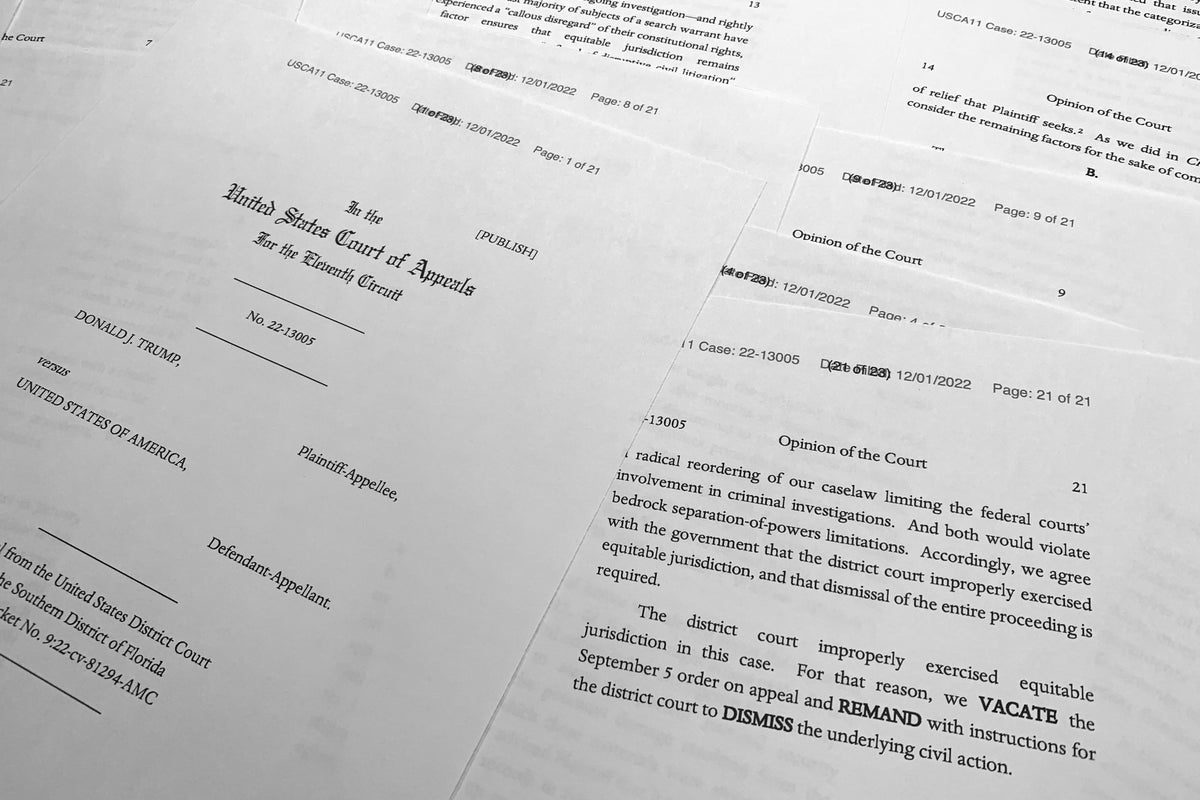
The Florida-based federal judge whose rulings on behalf of former president Donald Trump temporarily blocked the Department of Justice from evidence seized during the 8 August search of his Mar-a-Lago home and office has officially tossed the civil lawsuit he had used to intervene in the criminal investigation into his conduct.
US District Judge Aileen Cannon on Monday issued a one-page order dismissing the ex-president’s civil action on the grounds that she’d lacked the jurisdiction to hear it in the first place, bringing an end to the months-long delaying action by which Mr Trump had stymied Federal Bureau of Investigation efforts to determine whether he broke US laws criminalising unlawful retention of national defence information and obstruction of justice.
Judge Cannon, who was named to the federal bench by Mr Trump in the period immediately following his 2020 election loss to Joe Biden, had in September ordered federal investigators not to use any of the more than 10,000 government-owned records seized from the ex-president’s home to further its’ probe, which began after the National Archives and Records Administration informed the Department of Justice that it had found highly classified documents among records that had been stored in 15 boxes which Nara officials retrieved from Mr Trump in January.
Investigators repeatedly engaged with Mr Trump’s representatives to arrange the return of more documents believed to be in the ex-president’s possession, and later developed evidence that he was still hiding government records — including documents marked as highly classified — at his Palm Beach residence. After FBI agents searched his home, Mr Trump filed the lawsuit asking Judge Cannon to appoint a third-party special master to review the documents to determine whether any should be shielded from the government by attorney-client or executive privilege.
Judge Cannon granted Mr Trump’s request, which the Justice Department appealed. In arguments before the 11th Circuit Court of Appeals, attorneys for the government said Judge Cannon should never have heard the case because Mr Trump had no more right than any other citizen to keep the government from using lawfully-obtained evidence in a criminal investigation.
In a unanimous opinion issued on 1 December, the three-judge panel assigned to the case agreed, writing that Judge Cannon had ignored court precedents, both in hearing the lawsuit in the first place and in granting Mr Trump’s request, and ordering her to dismiss the case.
“The law is clear. We cannot write a rule that allows any subject of a search warrant to block government investigations after the execution of the warrant. Nor can we write a rule that allows only former presidents to do so. Either approach would be a radical reordering of our caselaw limiting the federal courts’ involvement in criminal investigations. And both would violate bedrock separation-of-powers limitations,” they wrote, adding that they agreed with government arguments that Judge Cannon “improperly exercised equitable jurisdiction” and that “dismissal of the entire proceeding is required”.







